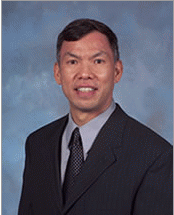Broadcast 2/24/2015 at 11:35 AM EST (76 Listens, 34 Downloads, 2214 Itunes)
The Rob Kall Bottom Up Radio Show Podcast
| Copyright © Rob Kall, All Rights Reserved. Do not duplicate or post on youtube or other sites without express permission. Creative commons permissions for this site do not apply to audio content or transcripts of audio content. | ||||
I was astonished to discover that this was the first interview Dr. Leonard Wong had given since his report on lying in the military had gone viral, after being reported by the Washington Post and CNN.
Leonard Wong is a research professor in the Strategic Studies Institute at the U.S. Army War College. He focuses on the human and organizational dimensions of the military. He is a retired Army officer whose career includes teaching leadership at West Point and serving as an analyst for the Chief of Staff of the Army. His research has led him to locations such as Afghanistan, Iraq, Kosovo, Bosnia, and Vietnam. He has testified before Congress. Dr. Wong is a professional engineer and holds a B.S. from the U.S. Military Academy and an M.S. and Ph.D. from Texas Tech University.
"rampant duplicity",
"Rear Admiral John Kirby, Chuck Hagel, told a news conference, "I think he's generally concerned that there could be, at least at some level, a breakdown in ethical behavior and in the demonstration of moral courage."
Rob: The people above have come to expect lying in the reports.
Dr. Wong: What we have is a facade ... starts being briefed and starts being accepted. It masks what's really going on"
...All these layers of well intentioned higher-ups add work that it ends up can't be done.
Rob: What affect does that have on the culture, that all levels are lying.
Rob: Corporations are beginning to take bottom-up, systemic approaches. Is there any of that happening in the army?
Dr. Wong: Three solutions:
Acknowledge the problem, exercise restraint-- in piling on requirements, lead truthfully.
Rob: You cite:
'a major described "It's getting to the point where you're almost rewarded for being somebody you're not. That's a dangerous situation especially now as we downsize. We're creating an environment where everything is too rosy because everyone is afraid to paint the true picture. You just wonder where it will break, when it will fall apart."'
Dr. Wong: We're teaching young officers how to be hypocrites.
Rob: You say in your report, "the Army must take some rather drastic measures in order to correct the current deleterious culture," and that there is a "culture of dishonesty plaguing the Army."
(regarding the three elements of the solutions proposed in the report) Are these three solutions drastic enough?
Dr. Wong: The army is both an organism and organization. " people have to do things that could cost them their lives"
...What happens is you need trust-- from the lowest levels to the top levels
...There's a big push in the army to allow mission command.
Rob: Talk a bit more about mission command. A commander expresses what he's trying to do, the outcome-- through trust" they empower subordinates to"
Dr. Wong: We need a leader to be able to...
...But it still retains the hierarchy needed in a lethal...
...We need to pull the culture back to line up with this notion of mission command...
...We create all these "substitutes for leadership"...
Rob: These are centralized algorithms.
Dr. Wong: Exactly...
...The army should be an effective organization it doesn't need to be an efficient organization...
Rob: Has there been any analysis of the cost of this culture of lying in the military?
Dr. Wong: ...My study was based on discussions with officers and you can only push them so far...
Rob: Has it affected strategic decisions?
We talked more about the bottom-up aspects of mission command.
Dr. Wong: The military needs to develop adaptive leaders.
Rob: Are they doing anything to create those kinds of leaders?
Dr. Wong: The war did it. (iraq and Afghanistan)
The wars are coming down, so we have to...
Rob: Where do the upper echelons come in developing adaptive leaders?
Dr. Wong: ...The top-down approach worked well when we were going against the Soviets". The top still has a function...
Rob: How does this bottom approach affect the culture and the people at the top...?
Dr. Wong: A successful bottom-up approach develops a trust between the top and the bottom.
Rob: If war critics look at this, they're going to say, "How can we trust the military about anything?"
Dr. Wong: I think a lot of people are saying 'why are they discussing this? It goes on in all organizations.'
Size: 19,382,672 -- 0 hrs, 40 min, 22 sec










